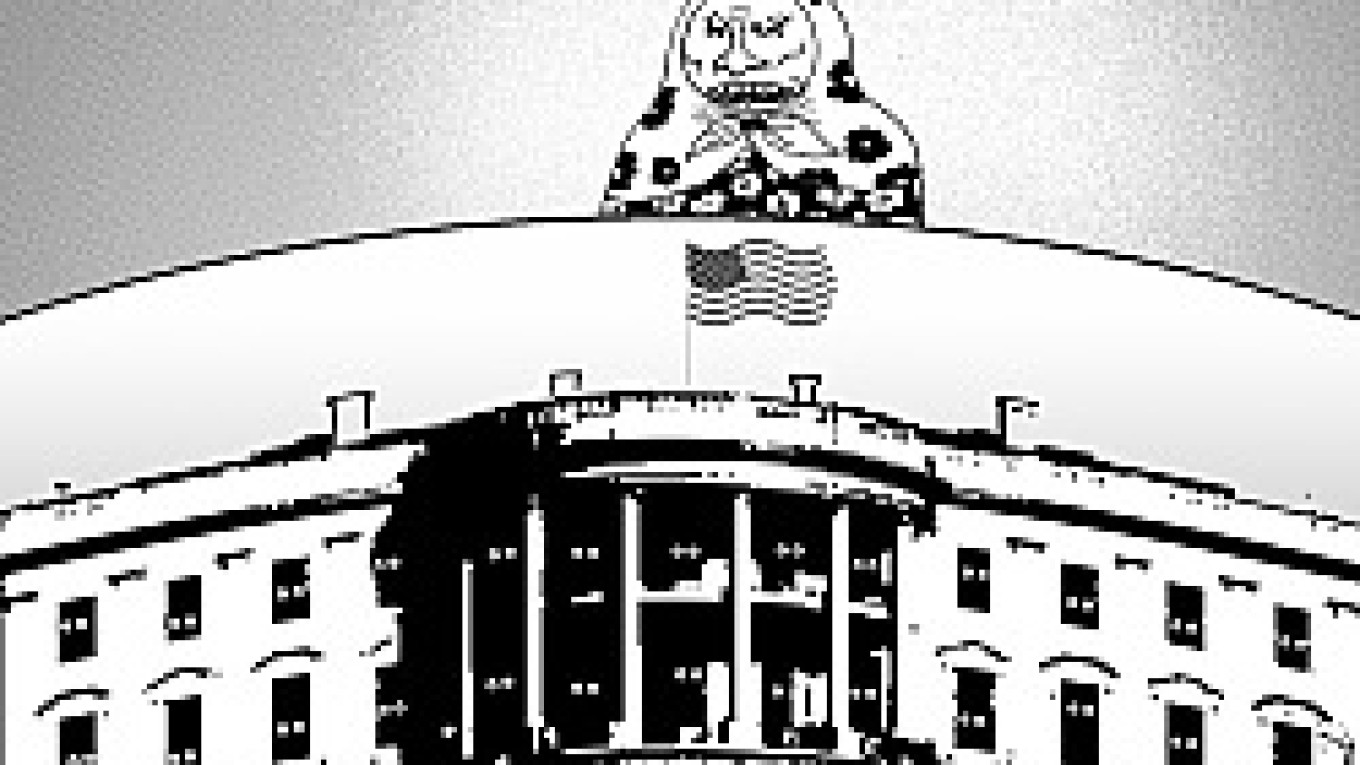Barack Obama's presidency promises to usher his country into a new era of post-unilateral decision-making, international diplomacy and coherent foreign policy making. This new era should also, perhaps, end senseless public animosity toward Russia that has continued since 1991, when the Soviet Union lost the Cold War and disappeared.
Becoming the world's only superpower proved very damaging to the United States. It is no surprise that U.S. overconfidence bred hubris. In the 1990s, President Bill Clinton's administration tirelessly reminded the former Soviets that they, the losers, should unwaveringly follow the lead of the all-powerful United States. President Boris Yeltsin's privatization program was not speedy enough, at least as judged in a Washington anxious to spend as little as possible helping Russia. Any thoughts of a Marshall Plan to ease Russia's path were dismissed in Washington as welfare for the communists.
Russia is certainly far from perfect, and its current return to authoritarianism is not all, or even mostly, Washington's fault. But the economic arrogance from the Clinton era, coupled with the political egotism of the Bush years, was not a sound strategy, at least in terms of impact on Russia. Wagging the dog of Putinism can serve only one purpose -- to appeal to the familiarity of the communist threat in order to cover up the United States' own imperfections.
| To Our Readers | |
The Moscow Times welcomes letters to the editor. Letters for publication should be signed and bear the signatory's address and telephone number. |
Indeed, how much better was Pervez Musharraf, the former Pakistani president whom the Bush administration hailed as a beacon of democracy even as the Taliban regrouped in his country's tribal regions? Or Afghanistan's Hamid Karzai, another purported democrat who arguably presides over the most corrupt government in the world? What about Georgian President Mikheil Saakashvili, a politician who under the guise of democracy has been silencing Georgians who protest his rule? Then there are of course Hugo Chavez and Mahmoud Ahmadinejad. And the United States' own claim to fame was former Vice President Dick Cheney, a perverse constitutional theorist and modern Dr. Strangelove if there ever was one.
But Russia is the butt of political jokes, the focus of Sarah Palin's foreign policy ire and the new Red Scare for The New York Times. And let's not forget Hollywood, where the Russians have returned, after a brief interval, as the designated bad guys. In the latest "X-Files: I Want to Believe," Russians are the horrible dog trainers and organ harvesters; in the 2004 "Hellboy," the mummified Grigory Rasputin seeks to spread evil around the world; in "Hitman," we have a bad Russian president, his criminal double and his corrupt brother; even in the Coen brother comedy "Burn after Reading," Russia is made into an enemy, albeit a fake and funny one. In "The Golden Compass," the latest in a series of grand fairy tales that attempted to take Americans' mind off their troubles, the villainous animals speak perfect Russian.
We all need a good enemy. As U.S. Defense Secretary Robert Gates once shrewdly pointed out, the talk of a new Cold War fills him "with nostalgia for a less complex time." Indeed, the world made a glib sort of sense back then -- communism vs. capitalism, good vs. evil empire.
Terrorism is too amorphous, bin Laden you actually have to catch and the Arabs as the enemy is, somehow, politically incorrect.
We shouldn't be unfair to the Chinese. They too would make an excellent adversary, but China is too mysterious for a simple us-versus them confrontation with its middle kingdom of Jet Li, kung fu and capitalists posing as communists. China also produces toys, medicine and everything else for U.S. consumers; even if tainted, leaded or spiked, there is no living without them.
Russia, on the other hand, remains a distant land of ballet, bombs and Dostoevsky. The Cold War mystery has defrosted, but the familiarity of the threat remains conveniently alive.
What makes Russia a great enemy is that unlike bin Laden, you don't need to worry too much about it -- not yet. But if the Russians continue to be treated as if the first Cold War never ended, the new Cold War will actually arise.
Nina L. Khrushcheva, professor of international affairs at The New School University in New York, is the author of "Imagining Nabokov: Russia Between Art and Politics."
A Message from The Moscow Times:
Dear readers,
We are facing unprecedented challenges. Russia's Prosecutor General's Office has designated The Moscow Times as an "undesirable" organization, criminalizing our work and putting our staff at risk of prosecution. This follows our earlier unjust labeling as a "foreign agent."
These actions are direct attempts to silence independent journalism in Russia. The authorities claim our work "discredits the decisions of the Russian leadership." We see things differently: we strive to provide accurate, unbiased reporting on Russia.
We, the journalists of The Moscow Times, refuse to be silenced. But to continue our work, we need your help.
Your support, no matter how small, makes a world of difference. If you can, please support us monthly starting from just $2. It's quick to set up, and every contribution makes a significant impact.
By supporting The Moscow Times, you're defending open, independent journalism in the face of repression. Thank you for standing with us.
Remind me later.


